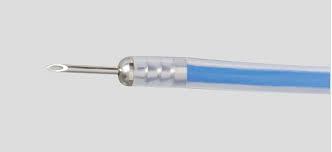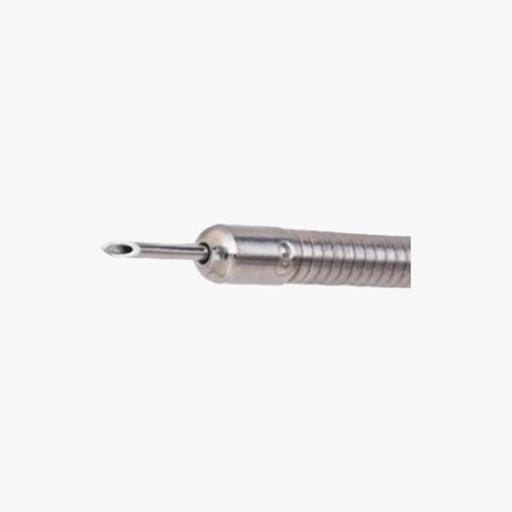Endoscopic injection needles - types, features of use, and sterilization

Endoscopes are used in medicine not only to diagnose diseases. These are tools that allow for treating certain pathologies or improving conditions for further surgical intervention. Endoscopy injection needles help with this.
A conventional endoscopic needle is designed to inject drugs into tissues. The main indications for using this instrument:
- Local antibiotic therapy (injections of antibacterial drugs directly into the pathological focus).
- Sclerosis of esophageal varices (to prevent or eliminate bleeding in cirrhosis).
- Stopping stomach bleeding caused by an ulcer or tumor. Flexible endoscope injection needles allow injecting epinephrine solution, after which the vessels will constrict and the bleeding will stop. If ineffective, ethanol is additionally injected.
Also, an endoscopic injection needle is used when it is necessary to clearly delineate the tumor or manipulate its position. Gastric neoplasms are not always well visualized during endoscopy, and their borders are not clear. With the help of an injection needle, the doctor injects a colored solution of 0.9% NaCl into the submucosal layer of the organ. This allows the gastric tumor to be slightly elevated, after which it is much easier to remove it by endoscopic dissection or resection.
Such therapeutic endoscopic methods have recently gained popularity due to the low trauma of the operation and high efficiency in early-stage cancer.
Endoscopic injection needle Alton Medical is suitable for all necessary manipulations and is compatible with most modern flexible instruments - gastroscopes, bronchoscopes, enterocolonoscopes.
Reusable injection endoscopic needle - materials and features of sterilization

Reusable endoscopy injection needles are more convenient for a medical institution that performs a large number of surgical interventions. Their service life is quite long, provided that the operating rules are followed, and the cost is much lower than with regular purchases of disposable injection needles.
However, since reusable flexible endoscopy instruments come into contact with biological fluids from different patients, they must be properly sterilized in an autoclave. It matters what material the reusable injection endoscopic needles are made of, as this affects the sterilization time and temperature conditions. Typically, autoclaving at 134°C is used to completely disinfect medical instruments.
Alton Medical offers surgeons and endoscopists injection needles with an outer sheath made of teflon or stainless steel. This ensures not only the durability and wear resistance of the endoscopic equipment but also the possibility of regular long-term sterilization without affecting the quality and sharpness of the instrument.
